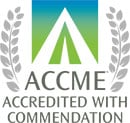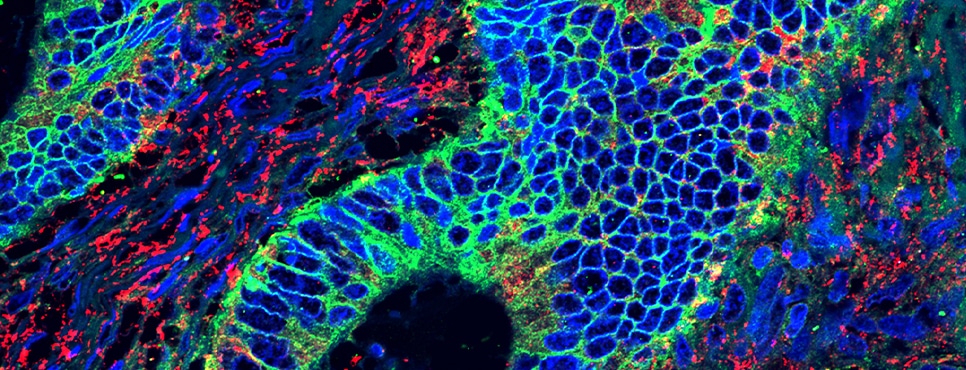Continuing Medical Education (CME)
Accreditation Statement

The American Association for Cancer Research (AACR) is accredited by the Accreditation Council for Continuing Medical Education (ACCME) to provide continuing medical education activities for physicians.
Credit Designation Statement
AACR has designated this live activity for a maximum of 17.50 AMA PRA Category 1 Credit(s) ™.
Physicians should only claim credit commensurate with the extent of their participation in the activity.
Credit certification for individual sessions may vary, dependent upon compliance with the ACCME Accreditation Criteria. The final number of credits may vary from the maximum number indicated above.
Claiming (CME) Credit
Physicians and other health care professionals seeking AMA PRA Category 1 Credit(s)TM for this live continuing medical education activity must complete the online CME Request for Credit Survey by December 7, 2022. Certificates will only be issued to those who complete the survey. It will also be emailed to you following the activity. Your CME certificate will be sent to you via email after the completion of the activity.

Successful completion of this CME activity, which includes participation in the evaluation component, enables the participant to earn up to 17.50 Medical Knowledge MOC points in the American Board of Internal Medicine’s (ABIM) Maintenance of Certification (MOC) program. Participants will earn MOC points equivalent to the amount of CME credits claimed for the activity. It is the CME activity provider’s responsibility to submit participant completion information to ACCME for the purpose of granting ABIM MOC credit.
To receive ABIM MOC, participants must request MOC in the CME Request for Credit Survey and complete all questions. Once these steps are completed, AACR will submit your completion information via the ACCME’s Program and Activity Reporting System for the purpose of granting MOC points.
Statement of Educational Need, Target Audience, and Learning Objectives
The field of immunotherapy is one of the most promising in cancer research. Utilizing the body’s immune system to fight cancer is often safer and better tolerated than traditional cancer treatments such as chemotherapy and radiation. Study and understanding of the immune system’s response to cancer has increased exponentially over the past several years, and this has given rise to many breakthrough cancer treatments.
Types of immunotherapies include radio- or chemolabeled monoclonal antibodies (including checkpoint inhibitors); bispecific monoclonal antibodies; checkpoint immunomodulators such as PD-1, PD-L1, and CTLA-4 inhibitors, which have been approved for treatment of many cancers; adoptive cell transfer (including CAR T cell therapy); therapeutic vaccines for treatment and prevention; cytokines such as interleukins and interferons; and oncolytic viruses.
However, there is currently a gap in professional practice regarding targeting of solid tumors with adoptive cell therapies, and there is also new research to understand and combat immunotherapy-related toxicity and resistance to immunotherapy. There is also new research about the efficacy of next-generation treatments involving novel checkpoints and neoadjuvant. Researchers are also using ever more complex computational models geared towards a deeper understanding of the immune microenvironment in order to design more efficacious treatments.
This conference will feature some of the world’s premier oncologists who will present their latest research on current immunotherapies. It will also help bridge the gap between the advances that are underway in the lab and their application to clinical practice. Particularly, this conference will feature talks from scientists working in cutting edge fields such as adoptive cell therapy, artificial intelligence and big data, metabolism, the microbiome, spatial transcriptomics, among others, which will lead to a deeper understanding of the immune response to cancer.
Only through a thorough understanding of the basic immunological science behind these new technologies and collaboration between basic scientists and oncologists can new treatments be developed. For physicians to best aid patients, they must have a solid and current understanding of the complexities of basic immunotherapy and new advances taking place in the lab that can eventually be applied to the clinic. Physicians will leave this conference with knowledge of novel advancements in immunotherapy in the lab and the potential thereof for therapeutic applications.
After participating in this CME activity, physicians should be able to:
- Identify novel strategies, such as computational models, AI, and big data for analyzing tumors.
- Evaluate novel neoadjuvant and adoptive therapies to focus on targeting solid tumors.
- Explain the role of host factors such as the gut microbiome and metabolism in tumor progression.
- Analyze the role of myeloid cells in the tumor microenvironment.
- Integrate novel checkpoints and targeted therapies for personalizing cancer immune responses.
- Assess the relationship between immunotherapy and efficacy, resistance, and toxicity.
- Integrate next-generation spatial analysis approaches to enhance immune activity and resolve tumor heterogeneity
Disclosure Statement
It is the policy of the AACR that the information presented at AACR CME activities will be unbiased and based on scientific evidence. To help participants make judgments about the presence of bias, AACR will provide information that Scientific Program Committee members and speakers have disclosed all financial relationships they have with ineligible companies whose primary business is producing, marketing, selling, re-selling, or distributing healthcare products or services used by or on patients. All of the relevant financial relationships for these individuals have been mitigated.
Acknowledgment of Financial or Other Support
The AACR gratefully acknowledges the following commercial supporters:
PROFESSIONAL EDUCATION GRANTS
- Merck
- Pfizer
- Genentech
Questions about cme?
Please read our frequently asked questions. If you still have questions, please contact the Office of CME at (215) 440-9300 or [email protected].
